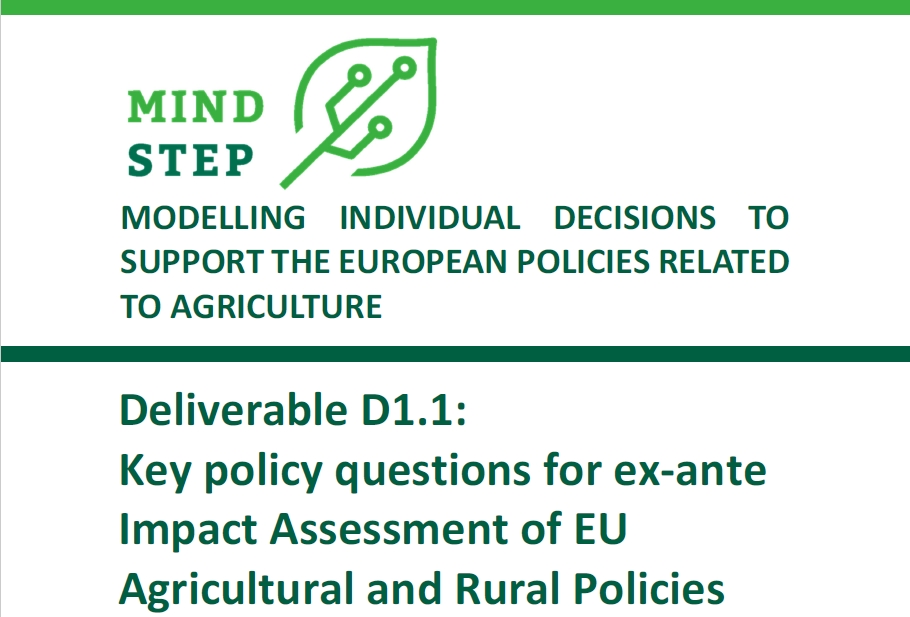MIND STEP is aimed at supporting the ex‐ante evaluation of future policy settings that might impact the European agricultural and rural sector using Individual Decision Making (IDM) models.
The resulting research agenda is the first step of the MIND STEP conceptual model, which consists of: defining key policy questions; identifying the indicators for monitoring and measuring the impacts of policies; investigating whether current IDM models can be used to for evidence based policy analyses.
In particular, this study wanted to answer the following research questions: Q1: What agricultural policy objectives are relevant and worth of investigation today?; Q2: Which benchmark scenarios should be investigated in order to capture the most relevant impacts of these policy objectives on EU agriculture and rural areas?
These questions have been addressed using a set of qualitative tools. Among them, stakeholders’ engagement via interviews, the use of policy expert team and the use of a focus group (including members of the core stakeholder group and the policy expert team) played a crucial role.
The MIND STEP core stakeholder group was carefully chosen to cover a broad range of interests from different groups, including both public and private sector representatives, giving particular attention to the inclusion of policy makers at a strategic level. Through a 5‐step qualitative research approach, we ranked the proposed post‐2020 Common Agricultural Policy (CAP) objectives based on the stakeholders’ answers and the corresponding key policy questions for each post‐2020 CAP objective, as defined by the policy expert team. Finally, for each policy question we associated a list of relevant benchmark scenarios as identified by the stakeholders.
A clear focus on environmental policy objectives emerged from the MIND STEP core stakeholder group views.
The results presented in this report should allow MIND STEP researchers to have a clearer idea of which policies need to be modelled and thus make them able to give timely impact assessment for evidence‐based policy making. In fact, setting the future priorities of agricultural policies is fundamental to understand what research direction IDM models should take. This report also set the stage for the remaining activities in Work Package 1, in particular for the identification of the relevant indicators for monitoring and measuring the impacts of policies (D1.2) and for the analysis of the potentials of IDM models in providing reliable simulations of the impact of these policies (D1.3).
Download:

